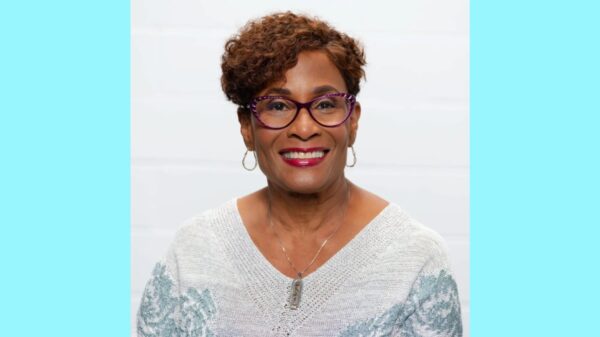By Megan Sayles

Schelo D. Collier likes to say she became an investor before she even knew what investing was. In middle school, she used her weekly allowance to buy snacks to sell to her classmates at double the price she purchased them for. Collier was, in essence, buying low and selling high.
In 2019, she founded Black Women Invest to foster a community for like-minded Black women to learn about investment and wealth-building topics. The network has grown to nearly 15,000 members and regularly engages in financial wellness trainings, investment brunches and international real estate tours.
For Collier, investing is key to the Black community building wealth. Homeownership has long been recognized as a determinant of wealth. However, Black people have significantly lower rates of homeownership compared to their White counterparts due to discriminatory housing policies and limited access to credit.
Investing can contribute to economic empowerment for Black communities.
“Since investing allows people’s money to work for them, it speeds up the process of closing the racial wealth gap,” said Collier. “Someone who is just saving and putting money aside or in their mattress is not going to create real wealth. Their money is going to technically depreciate because it’s not going to win against inflation.”
The AFRO connected with Collier to gain insights into investing basics. The responses below have been edited for length and clarity.
Q: How early should someone start investing?
A: As soon as you start making money. At 18, you can open up a brokerage account on your own and manage it. If your job offers an employer-sponsored account, like a 401(k) or 403(b), you should start investing in that even if you don’t fully understand it just yet. You can also start investing for your children even before they’re born through an account like a 529 Education Savings Plan.
Q: What options do people have for investing?
A: Outside of stocks and real estate, there’s cryptocurrency. You could also put money into a high-yield savings account, and it will gain interest. You can invest in bonds, which are essentially an “IOU” from a company or the government. They tend to be less risky than investing in stocks. You can also invest in money market funds and index funds.
As far as alternative investments, there’s venture capital. You can also invest in specific assets, like gold and oil, or privately into a company.
Q:What are some common misconceptions about investing?
A: One–that you need a lot of money to start investing. You can actually invest in the stock market with as little as $1. What you really need is a plan. You need to have a blueprint of what you ultimately want to achieve. Then, you can work backwards and determine what type of investments make the most sense for you.
The second one is that investing is very complicated. When you aren’t familiar with something, you can feel like you’re never going to understand it. I always tell people it’s like starting a new job. In those first few weeks, you think: am I ever going to be good at this? But, after a few weeks, the things you do become second nature, and it’s the same with investing. The more you dedicate time to learning, the easier it becomes.
Q: What should people avoid when investing?
A: It’s a really bad idea to chase hot stocks. By the time a majority of people hear about a stock and start buying it, it’s typically already overpriced. I think it’s more valuable to focus on understanding industries and to create a longer-term strategy to buy and hold stocks.
You also should avoid emotional investing. You don’t really know how you’re going to respond to your investments not going as planned right away. I always discourage people from downloading stock trading apps on their phones so they don’t make decisions based on fear or excitement. You can’t allow emotions to cloud the way you think about investing.
Q: What tips would you give people for reducing risks in investments?
A: The first thing is diversification. You can’t just put all of your eggs in one basket. You should spread your investments across different asset classes, sectors and geographic locations. That way, if one sector, one company or one particular part of the market performs poorly, it doesn’t completely wipe out your investment portfolio.
You should also employ dollar cost averaging. This is a strategy of continuously investing a fixed amount regardless of what’s happening in the market and regardless of the price. If you decide that you want to invest $100 a month into a particular fund, you continue to do that at the same time and same amount no matter what. This helps you pay a lower average price overtime.
In regard to the stock market, investing in low-cost index funds is also going to help you mitigate risk. With real estate, you want to find properties that are in the best location, and you want to have a credible real estate team.
Megan Sayles is a Report for America corps member.









You must be logged in to post a comment Login